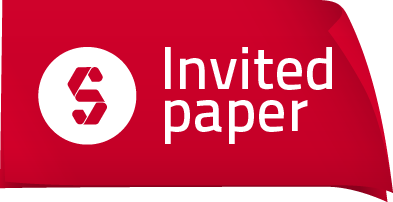Početna » Sinteza 2014 - Impact of the Internet on Business Activities in Serbia and Worldwide » Internet and Education

Personal Learning Environment and the Learning of Mathematics – possibility or reality?
Keywords:
Personalisation, Education, Mathematics Education, Concept formation, Digital Tools, personal learning environment
Abstract:
Personalisation in education is an innovative approach to learning; learning is closely connected with digital technologies and the Internet being the current trend. However, personalisation has different meanings and interpretations within the educational research community, which is what makes it difficult to define. Concepts are the building blocks of human cognition and an important component of our innate capacity of reasoning. New concepts both shape and lead to social innovation, which are often simple and well defined. In fact, it is one of the fundamental tasks we do as researchers: building solid and sustainable concepts that are the building blocks of a theory that can be developed and extended. When it comes to well-defined and stable concepts —lets say mathematical concepts— the task is easy, but when we try to conceptualise complex and organic processes that are perhaps a product of spontaneous human actions embedded in everyday activities, the task becomes more difficult. If we are trying to conceptualise a natural phenomenon, a shared concern among humanity —lets say global warming— the task becomes even harder. Engeström (2013) refers to the latter as “concept formation in the wild, in and between societal activities”. I believe that is the case more in education than in other disciplines and areas of human knowledge activity. Education becomes even more complex when what we are trying to define lies in the unstable intersection between education, the Internet and the digital tools given the affordances that they offer. Technology, especially due to its evolution at its present rate, is a complex space to delve into. This paper is about one of those complex and disputed concepts that live in the educational ecosystem: ‘Personal Learning Environment’ (PLE and its application and manifestations in Mathematics Education. Although PLE is an expansive concept (Engeström, 2013) that is, it is under construction and generates an on-going discussion, there are some things we can say more definitely about it. I am going to explore different approaches to concept formation as evident in mathematics education. I will therefore describe significant features a PLE should have and survey the existing PLEs in online mathematics education. I will expose how I intend to design a mathematics course that will use history of mathematics as a cultural context and how this will promote the use of personal learning environments as a means to learn mathematics for young students. The questions my talk will expose arise as part of my own struggle looking for theoretical anchors to define this complex and unstable construct –PLE, and its role in Mathematics Education.
CITATION:
IEEE format
C. Kuhn H, “Personal Learning Environment and the Learning of Mathematics – possibility or reality?,” in Sinteza 2014 - Impact of the Internet on Business Activities in Serbia and Worldwide, Belgrade, Singidunum University, Serbia, 2014, pp. 55-61 . doi:10.15308/sinteza-2014-55-61
APA format
Kuhn H, C. (2014). Personal Learning Environment and the Learning of Mathematics – possibility or reality?. Paper presented at Sinteza 2014 - Impact of the Internet on Business Activities in Serbia and Worldwide. doi:10.15308/sinteza-2014-55-61
BibTeX format
Download
RefWorks Tagged format
Download





















